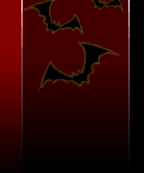|
Castlevania: The Dracula X Chronicles (2007)

For years...and years...and years...non-Japanese gamers were waiting
for Konami to publish Dracula X: Rondo of Blood in an English
territory. Sure, anyone who knew anything about search engines and
emulators (or ponied up the $100+ for an actual CD or $300+ for a PC
Engine Duo) have been playing Dracula X for years, but 2007 marks the
first time many American and European will be able to experience the
best old school Castlevania to date. Castlevania: The Dracula X
Chronicles for the PSP consists of three games - a 3D remake of Rondo
of Blood, a port (rather, emulated version) of the PC Engine original,
and another port (emulation) of Castlevania: Symphony of the Night all
retailing for $30. Obviously, it's a damn fine deal.
The remake of Rondo drew a lot of criticism when it was announced,
primarily because it was replacing the 2D sprites with 3D polygons,
even though the gameplay is pretty much the same. On one level, it's
definitely kinda warranted - while the look and feel is faithful to the
original, it does look a little bit ugly, and the color schemes that
look fine in 2D just look drab in 3D. Part of this is the fault of the
PSP itself, which uses lots of smudgy textures. Still, other companies
like Capcom have pulled off some incredibly effects in similar games
(Maverick Hunter X, Ultimate Ghouls 'n Ghosts), and here, Dracula X
just doesn't quite hold up. Still, once you get over the shock, there
are actually a lot of details that make the new graphics worthwhile.
Primarily, there's a lot more depth to the backgrounds that wasn't
there before. One of the most prominently redone areas is Stage 4, the
dungeon - the original version had a flat, boring black background, but
now it fills a lot fuller. The same goes with the caves in Stage 4'.
The water raft ride leading up to that segment is much cooler now, and
makes good use of the 3D graphics, whereas the original version was
just a straight, near vertical slope. Stage 5', which was a poorly
designed, weird hodge-podge of graphics from previous levels, has been
fully redesigned. Although the basic layout is the same, now it takes
on the guise of an aqueduct. There are still two paths through the
stages, and there are actually bosses now.
As you can tell by the cover, all of the artwork has been redone by
Ayami Kojima to make it more consistent with the later games. It's all,
as you can expect, pretty decent. Annette is now a blond, and Iris and
Tera now look more normal. The anime cutscenes have been replaced with
dialogue scenes similar to Symphony of the Night, which have some
altered lines compared to the original. Maria's scenes are still a bit
goofy, since she's constantly referring to Dracula as "The Bad Man",
but they're not as ludicrous as they were before. The second intro
cinema - the one with Richter kicking ass in the first stage - is gone
without any real replacement, but there's a new story scene in the
burning town showing the kidnapping of Annette. All of the bosses (and
some of the mid-bosses) have little cinemas that show your foe making
some kind of cool entrance. A few of these pale in comparison to the
original (you don't see the Behemoth's eyes follow you into the castle
in Stage 2 anymore), but a few (like the Dogether battle, where
Sanskrit symbols appear everywhere in room) are pretty cool. For those
that are curious...they censored the werewolf (in both versions) and
actually drew pants on him this time.
Some of the animation might seem a bit off, but that's mostly because
the animators were trying to emulate the awkward Belmont walk, and
something about it just looks strange coming off a 3D model, as opposed
to a 2D sprite. Similarly, the feel of the game is ever-so-slightly
different than the original version, but it's definitely not bad. It's
fast and responsive, in some ways even better. But newcomers, beware -
this is still a classic-style Castlevania, which means the Belmont walk
slowly, stiffly, and can only kinda sorta control their jumps in
mid-air. Although most of the enemy locations and patterns are
accurate, there are some situations that seem easier or harder. The
Bone Golem, for instance, seems a bit more difficult, and the attack of
the painting in the Ghost Ship in Stage 5 is more aggressive, leading
to plenty of deaths if you're not paying attention. I've heard
different people report different things - some longtime fans feel the
remake is easier, but others, usually newcomers, seem to think that the
original is much more forgiving. Personally, other than these
discrepancies, they feel about the same, once it all evens out. It's
much harder than the post-Symphony games, obviously, but it's
relatively easy compared to the NES Castlevanias, or even Bloodlines
(though still a bit harder than Super Castlevania IV.)
But long time fans should appreciate some of the cool stuff they've
added to the remake. For starters, saving Iris and Tera actually grants
you extra powers, which allow you to destroy certain types of walls.
Usually hidden in these walls are little music icons, which adds a
track to a "Sound Assign" mode. This allows you to take the complete
soundtracks from any of the three games and use them in any stage of
the remake. If you don't like the new music, then you can just assign
the old tunes, once you unlock them. All of these hidden collectables
add a lot to the replay value, especially for those who want that
coveted 100% clear value. There's also a new Hydra battle in Stage 5'.
Keeping in line with the post-Symphony games, there's also a false
ending if you don't save all four kidnapped girls. If you don't save
Annette, she turns into a Succubus that you need to fight, in a brand
new boss battle, who takes the place of Shaft's Ghost in Stage 7. If
you meet the requirements, then Dracula will have a new third form
before you get the true ending. Dracula X's greatest strength has
always been how much content is backed into the game, in a genre that's
usually pretty straightforward, and this just builds on that even more.
Most of the music is remixes of the PC Engine soundtrack. Only a few
tracks were rearranged by Michiru Yamane, but the rest are done by a
bunch of newcomers. Overall, it's a mixed bad - "Cemetary" in
particular loses pretty much everything that made it so cool, and
"Divine Bloodlines" (previously translated everywhere as "Bloodlines")
and "Cross Fear" (which was always "Cross A Fear" written in English)
just seem missing something. Granted, a lot of it has to do with my
fetish for 90s synth music, to the point where I'll randomly order Mega
CDs and PC Engine CDs just to listen to the soundtracks. If you're not
a fan of that kind of cheesiness, then you'll probably react more
favorable to these remixes. Some of them are unquestionably awesome
though - this is probably the best yet version of "Beginning" (here
known as "Dreams of Triumph", and the new version of "Op. 13" is
equally awesome. Some songs have changed around too. The boss theme now
has strings of the melody of Vampire Killer. The Level 7 song,
previously known as "Den" (translated in the PCE version as "The
Nest"), has been replaced by an arranged version of the song "Moon
Fight", from the X68000 game. "Slash", the theme for Stage 5', has a
totally new theme called "Red Dawn", which isn't too bad. The "Sound
Assign" theme is also the loading music from the X68000 game, strangely
enough.
You need to unlock both the original Rondo and Symphony, but they're
not too hard to find, if you know your way around the stages. Both
games are emulated pretty faithful, barring a little bit of slowdown.
Rondo in particular looks a bit smudgy on the PSP screen - apparently,
what shines on a TV or computer monitor just looks a bit washed out
when it's stretched from its original resolution. There's no full
widescreen - real or stretched - for either title, just a regular view
(close to the original resolution) or full view (which stretches it
vertically but still leaves borders on the side.) Rondo also suffers
more from ugly blurring due to the colors used, but that comes with the
PSP territory.
The version of the Symphony of the Night here is ever-so-slightly
enhanced. The dialogue has been rewritten and rerecorded, for starters.
It doesn't sound like they retranslated it, so much as just went
through the old English script and made it a bit less silly. The new
voice cast does a better job than the original, although only
marginally. Richter sounds less ridiculous, and Alucard's new voice is
far less young sounding than his really deep old one. But let's face it
- the original Symphony's voice acting is legendary, and it's sad to
see it go. At any rate, you can switch it to Japanese if you don't like
it. (This goes for all three games on the collection.) The two fairies
cut from the English version are back, and one of them can even sing,
like in the Saturn version. Also like the Saturn version, you have to
fight Maria to get the Holy Glasses, and you can play as her once you
beat the game. However, Maria here plays more like her form in Rondo of
Blood, instead of the magic-using acrobat from the Saturn version.
Neither the extra areas nor additional items are in this version, sadly
- it would've been nice to have the speed boots at least. The end title
song, "I Am the Wind" was also ditched, in favor of an original piece
called"Serenade of Sympathy".
Overall, this is a fantastic package. The revamped 3D graphics may
still offend people, but ultimately it's damn excellent to see a new
take on one of the best side scrolling action games ever made, and the
extra games are just glorious icing on the cake.
Dracula X Chronicles Artwork (credit to Vampire Killer)

Back to Top
Castlevania Games - Castlevania: The Dracula X Chronicles
|
|
|



